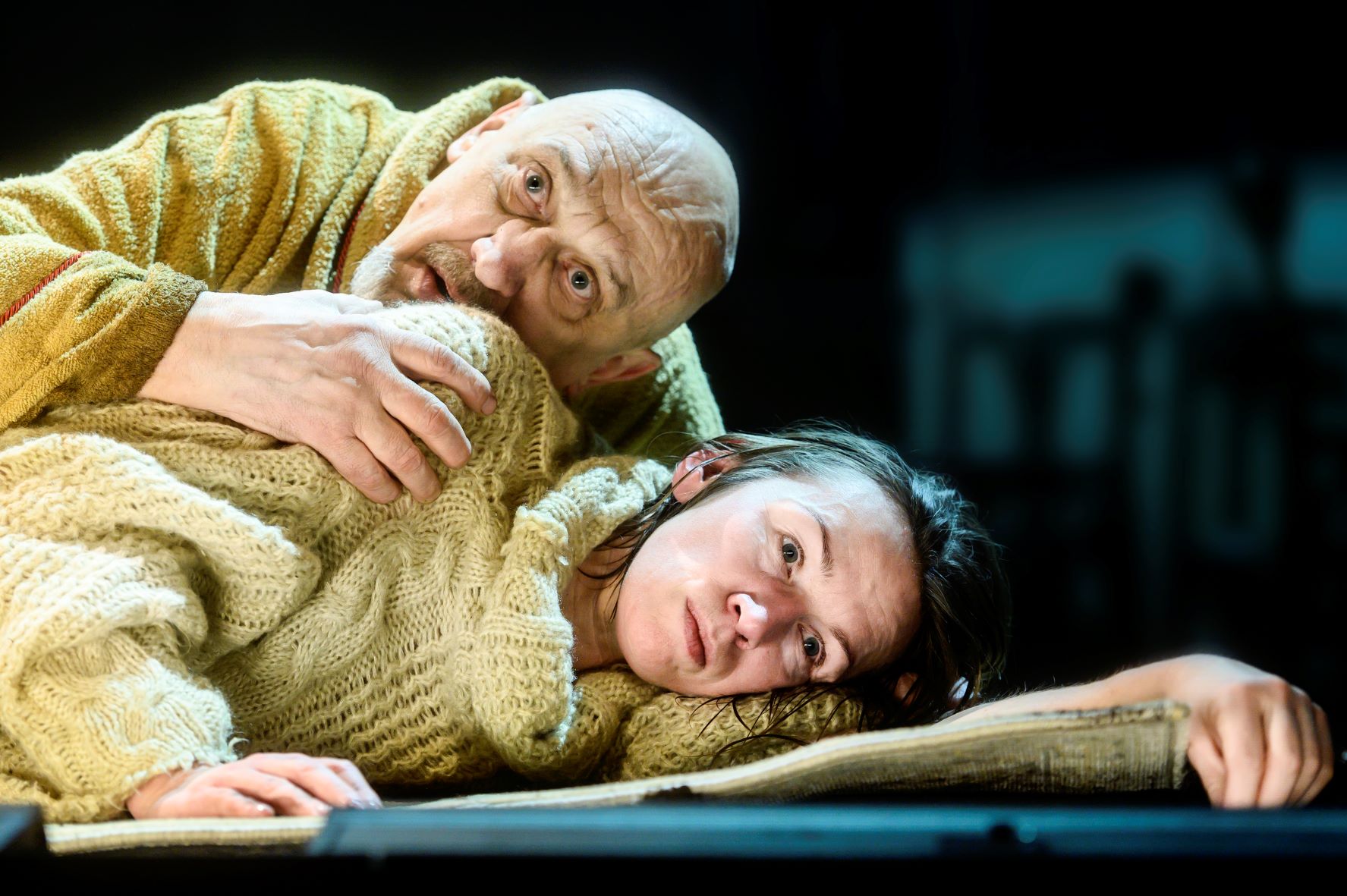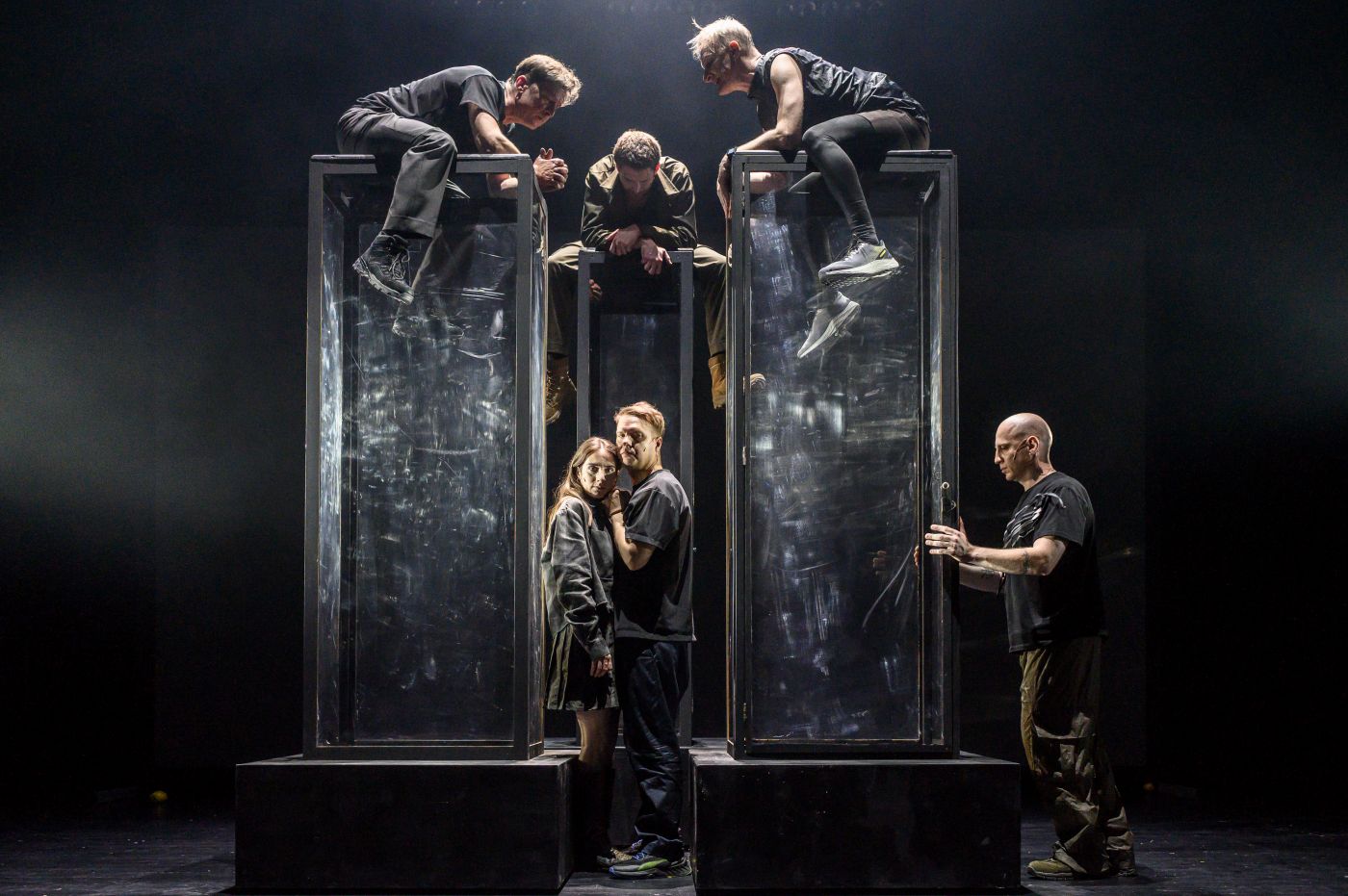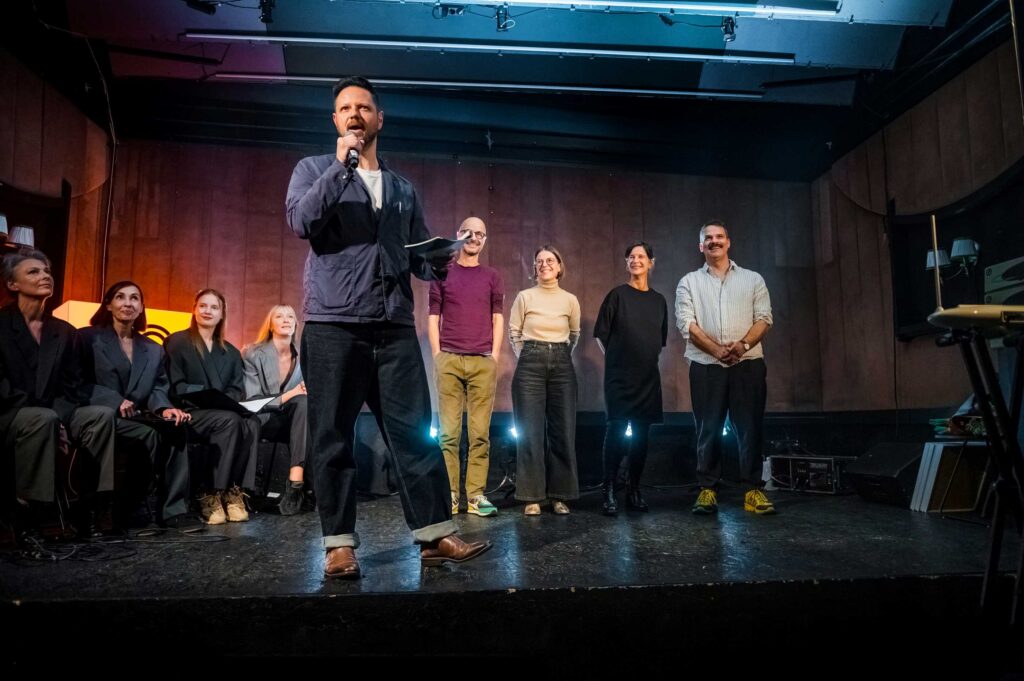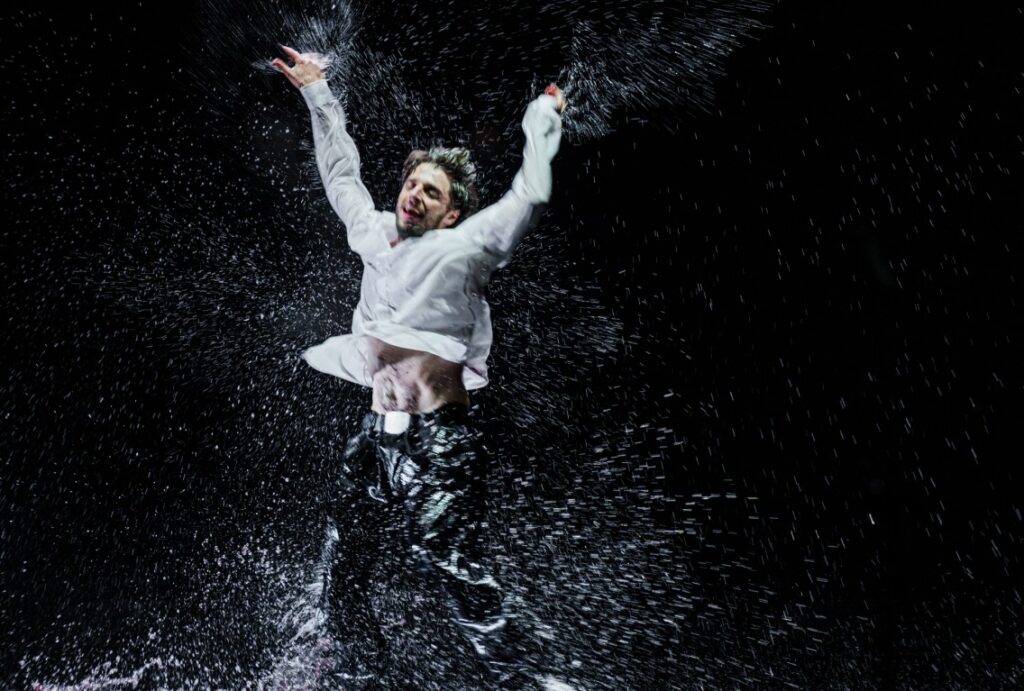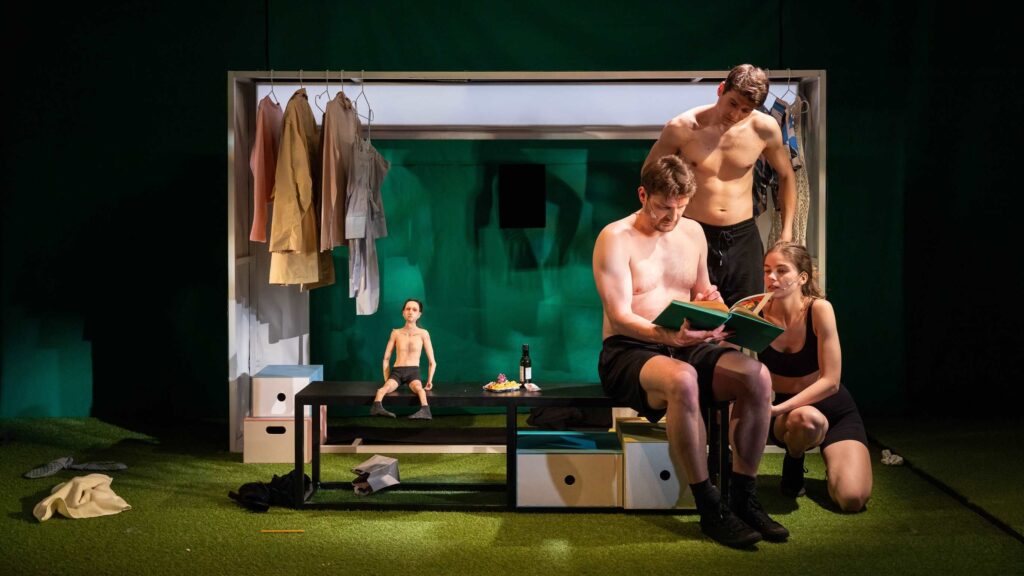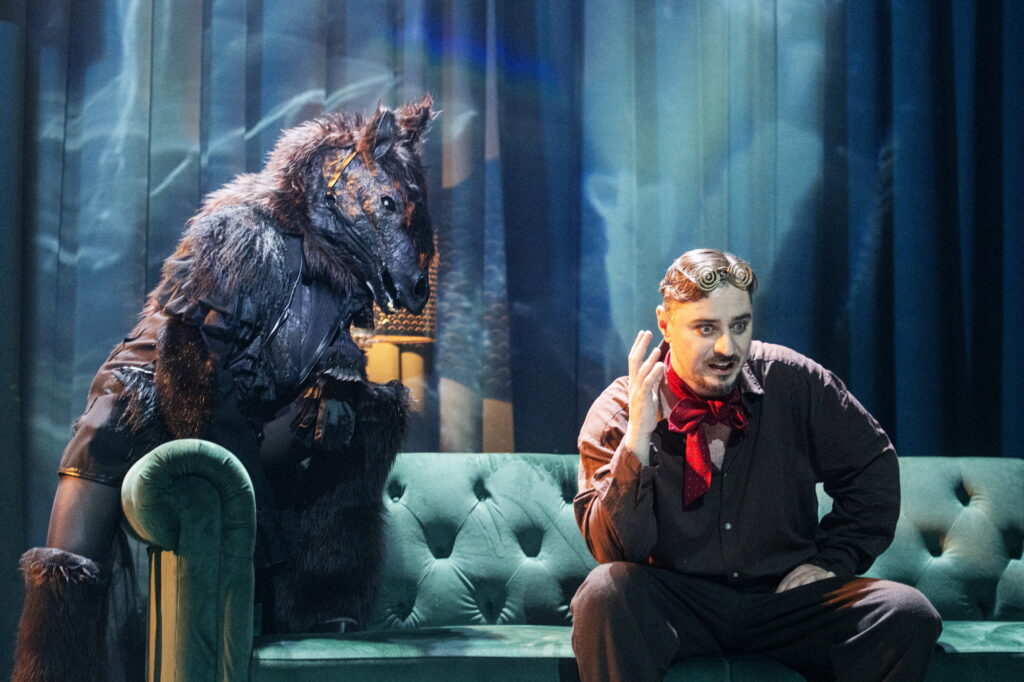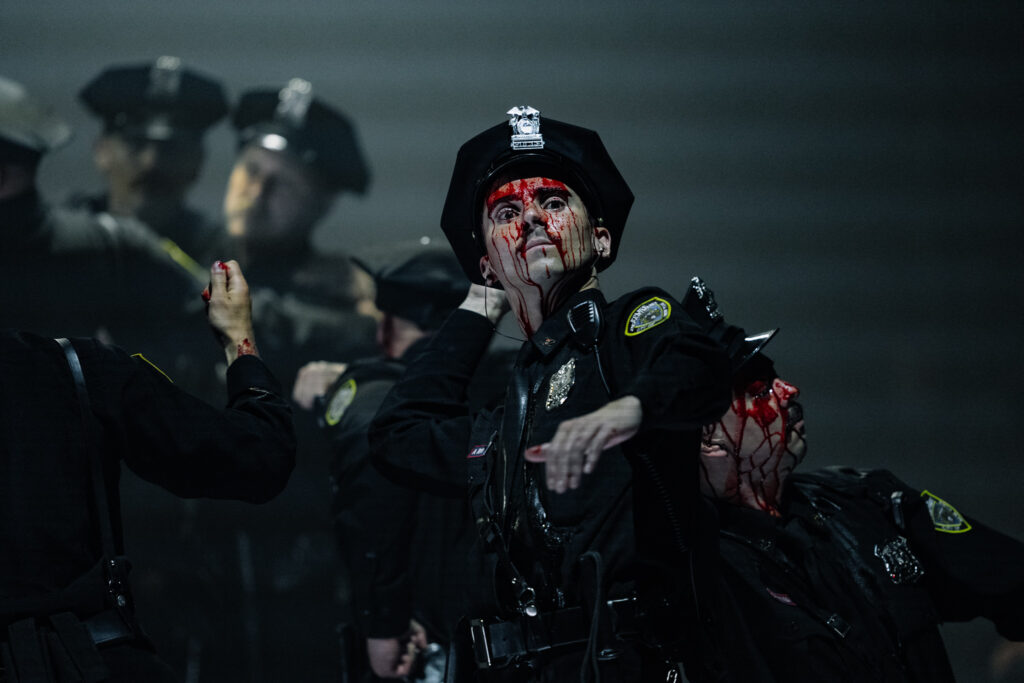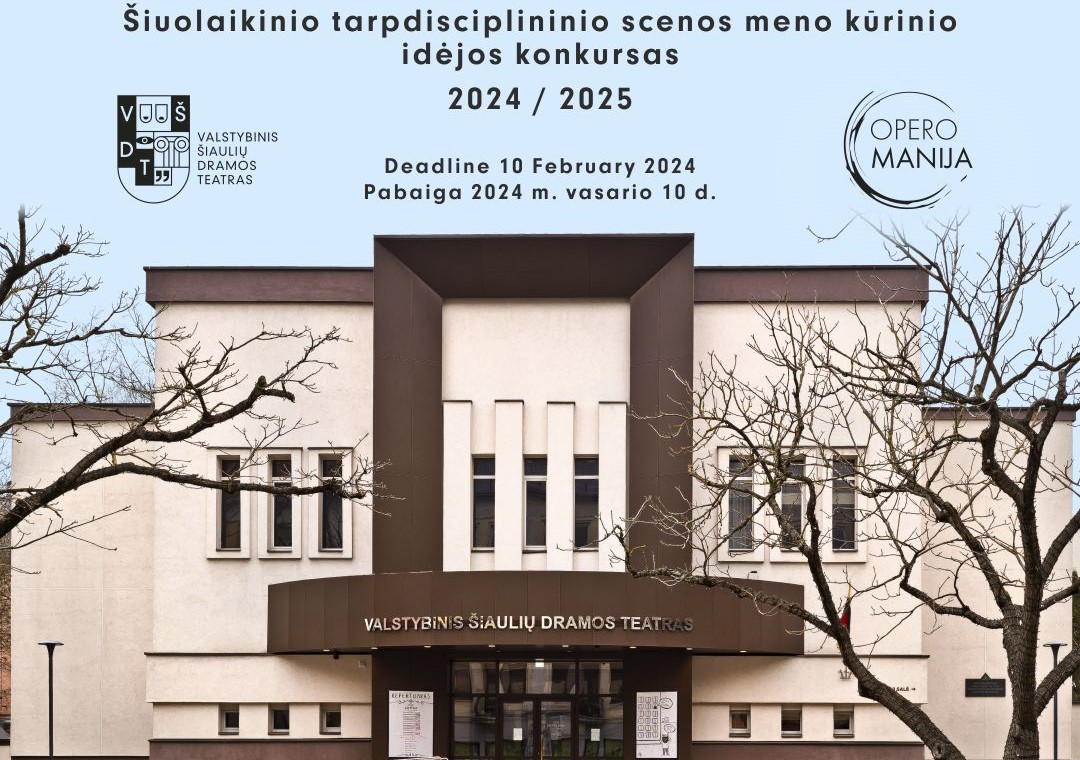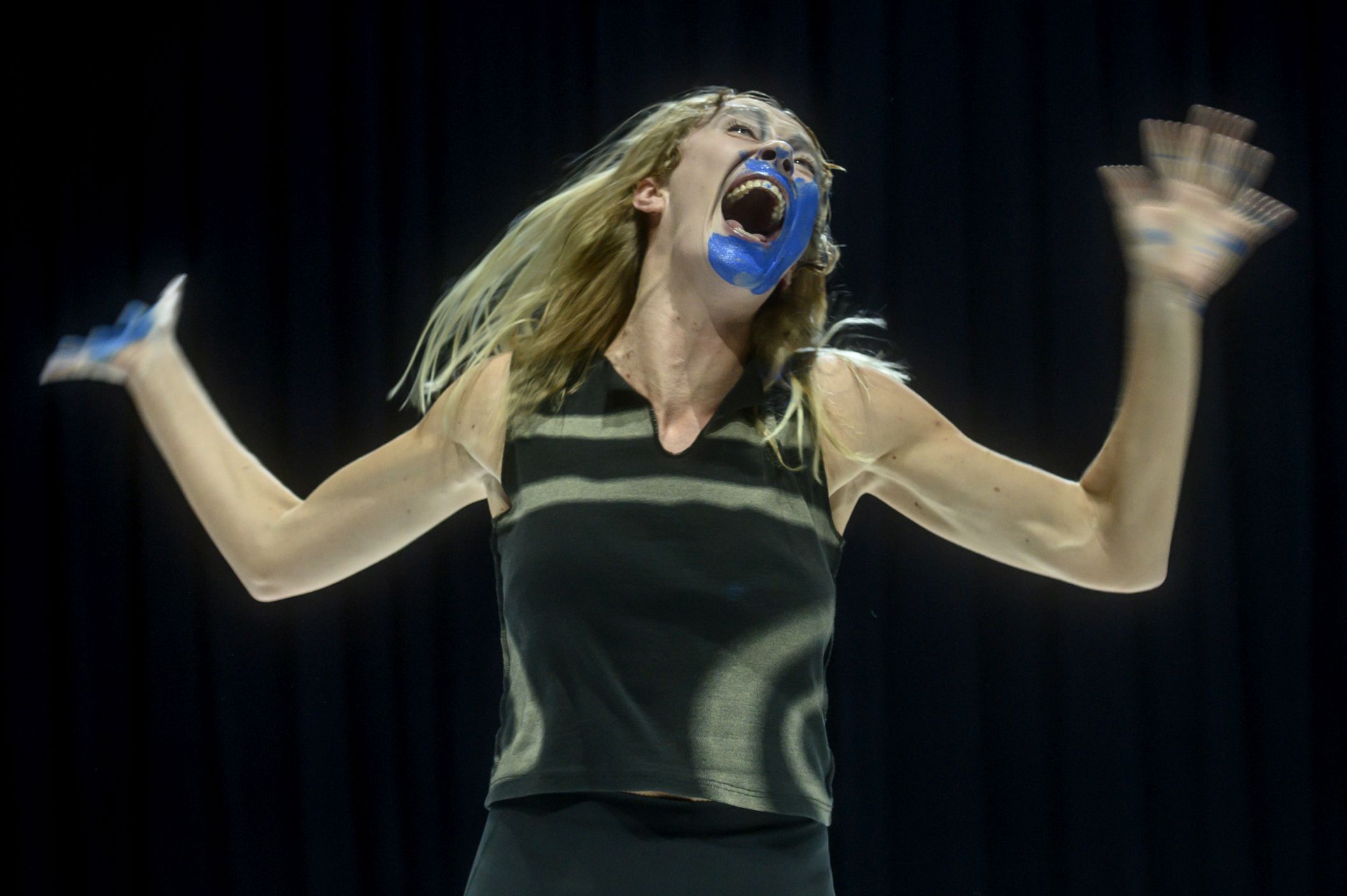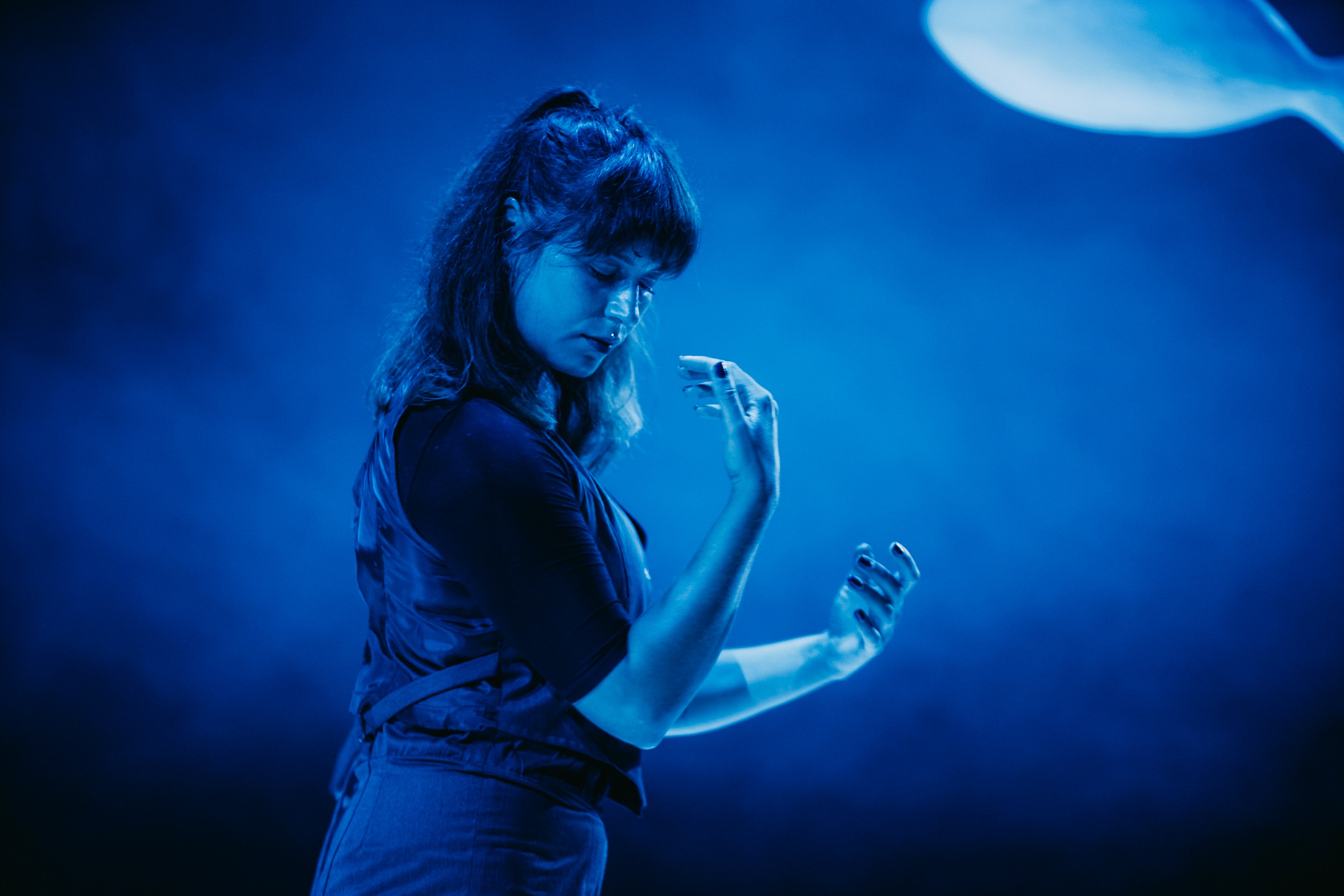This has been an eventful season for the theatre. After the pandemic, we seem to have returned to our uninterrupted routine, barely able to keep up with scandals, festivals and performances. Either the pandemic has slowed down our pace, or everything just started leaping ahead and overtaking us. However, in temporal perspective and with some cleansing of emotions, we may try to catch up, remember and assess the 2022-2023 theatre season - was it good, bad or just ordinary?
Theatres and dramas
I would probably cause another scandal if I did not start my review of the season with scandals related to (artistic) directors. In December 2022, director Oskaras Koršunovas was fired as artistic director of the Lithuanian National Drama Theatre (LNDT). It is the second time he has been “sacked” from the position. The first time Oskaras Koršunovas was asked to resign was in March 2022 when he gave an interview to the LRT radio programme Performansas, possibly inebriated. The request or suggestion to resign was not accepted that time, so Koršunovas was actually fired for the second time. However, there were scandals in other theatres as well - in early February 2023, the Ministry of Culture of the Republic of Lithuania announced that Laima Vilimienė, currently the General Manager of the Klaipėda State Musical Theatre, has won the competition for the position of the General Manager of the Lithuanian National Opera and Ballet Theatre (LNOBT). This caused very strong reactions in the LNOBT community, which turned into mourning actions. Funeral march performed before each evening performance, grave candles at the entrance of the LNOBT and the petition signed by more than half of the staff showed how much a united collective can do even in a state institution. It demonstrated that a nucleus of creative people wants to maintain the newly formed relationship and atmosphere in their theatre, since it is not only their work but also their home. And yet, the whole commotion has also shown how little the Minister of Culture, Simonas Kairys, can and is willing to do in the context of all these events. Silence is a stance as well, sometimes even stronger than supporting a particular side or trying to find out what caused these two sides to enter into conflict in the first place. Adaptation is a way of survival.
Meanwhile, somewhat more joyful noise was created when three young artistic directors Kamilė Gudmonaitė, Antanas Obcarskas and Eglė Švedkauskaitė were appointed new artistic directors of the LNDT. While it is true that colleagues and the public missed the direction and vision of the young people, they have boarded a train already in motion that no one was intending to stop. Thus, by accepting them “in advance”, most people expect changes to happen “on the way”.
Performances and people
Eglė Švedkauskaitė, director of the play Memoirs of a Young Man (State Youth Theatre, 2022), became the second woman director to be awarded the “Golden Stage Cross” for best direction - and that is certainly something to be proud of. I am also very happy about Mantas Zemleckas' performance of Dorian (Dorian, directed by Robert Wilson; National Kaunas Drama Theatre, 2022) - he (finally!) became the best actor of the year. Another delight: the ensemble cast of the play The Savage (Juozas Miltinis Drama Theatre, 2022) and the ensemble cast nomination itself, which has been featured for several years in a row. This only proves that the theatrical expression produced by a teamwork of actors is becoming as important as the creation of individual roles. There is a change of attitude not only towards the evaluation of actors' work, but also towards the importance of the collectivity of the actors creating the performance. And, of course, there is one more “finally”: this year's recipient of the “Borisas Dauguvietis' Earring” award is Ana Ablamonova, the producer of “Operomania”. Marius Ivaškevičius earned the title of the most popular playwright of 2022 and has received the LATGA prize. Before the awards ceremony the playwright dubbed himself “the most famous living playwright in the Baltic States”, and the award was a good confirmation thereof. However, after a brief pause and a return to perhaps less famous, but really important things, I would like to mention the performance Life is a Dream directed by Gediminas Rimeika, who is still discovering his theatrical language (Arts and Science Lab, 2023). It is a bright and bold step towards the theatrical dream.
Heiner Goebbels' book The Aesthetics of Absence (translated by Rūta Jonynaitė; Vilnius: Apostrofa, 2023), translated into Lithuanian and published by “Apostrofa” at the end of the season, will certainly help us to see theatre with a more open mind. It is a gift for theoreticians, practitioners and those who are just coming to theatre from other spheres.
A small but important event was the performance Stuck at Klaipėda Youth Theatre, which was presented in Vilnius. It is a play about theatre and for the theatre, so when it found its temporary home in the Old Theatre in Vilnius, it seemed like a real gift for theatre people.
The last show of Oskaras Koršunovas' Hamlet in the capital city this spring was yet another landmark. Fifteen years of journey came to an end one evening in March - as simple as that. It is gratifying that the play “ended” in its heyday, even taking on new meanings. I am glad that I did not have to witness it becoming stale. I am also glad that I have been able to follow its journey through the world.
Among the most notable premieres of this season were The Barbarians by Árpád Schilling (State Youth Theatre, 2023) and Metamorphosis by Oliver Frljić (LNDT, 2023). While being very different, both plays address the contemporary consciousness, the man in the face of fear. By the way, both directors wanted to take up the same short story by Coetzee, but this overlap would have been too much.
Critique and critics
I write this column in a very subjective way - after all, I am writing about my colleagues. Therefore, my choice of critique for this season does not reflect my sympathies for the performances I am describing, or my sympathies for those who are writing - it shows my sympathies exclusively for their texts, their words, their naming of specific objects.
Ieva Tumanovičiūtė, who wrote the text The Slipping Meaning about The Rhinoceros by Antanas Obcarskas', has raised spot-on questions to the creators and the viewers of the performance: “The form, which was given a lot of attention, no longer justified the content. Maybe the content is secondary indeed? Maybe it is the development of art forms that matters?” These are the questions that puzzle the viewer and should at least slightly annoy the creator. Hopefully.
Equally accurate was the text How to be afraid of war in a right way? by Aušra Kaminskaitė addressing the performance Dawn of the Gods. This is a play that was presented at Avignon, and it is also a play that represented one of the first responses to war, but the metaphors of war therein were stronger than theatre.
In her review What does it mean to be human? Ramunė Balevičiūtė writes: “A similar feeling did not leave me after Erinyes by Sergey Loznica and The Barbarians by Árpád Schilling. I want to break into the world of these performances because I am curious, I care about what is being said, but they seem to exclude me, they seem to spit me out.” When reading Balevičiūtė's text I feel that she cares about theatre and that it is important for her to penetrate it in order to fully understand it. It is a text that made me somewhat change my approach towards the performance I had just seen.
Meanwhile, the abovementioned performance of Sergey Loznica's Erinyes is very accurately described by the title of review by Daiva Šabasevičienė Away from the Theatre. Throughout the text one feels the painful, yet accurate definition of feelings after watching Erinyes. It is not a performance of today, but rather a theatre of the past.
Kaminskaitė's review of Sirens Festival's foreign programme performance Dry Season, titled Men are Innocent, Masculinity is to Blame, challenged the stereotypes abounding the performance itself. It is a real glance of a critic at themes that are hard to criticise, which demand you to stay silent or nod your head in approval. However, the sharp, “careless” text certainly makes one feel that one was not alone in a performance that had very little to nod and smile approvingly at.
Dovilė Zavedskaitė's reaction to the attack on all criticism instead of a few critics, in the text Criticism for Critics No. 2 #reaction, evokes reactions of approval and recognition, the kind of smiling amusement that the Dry Season did not manage to achieve.
It was also interesting to read the text Mechanism Theatre by Goda Dapšytė so aptly reflecting on both the performance and the person who saw it once and sees it today. In polemics with her colleagues, Goda gets closer to herself observing this performance, and to herself, whom she only tries to remember.
Avidly and with great interest I read the article The Problem of Acting in Opera by Rima Jūraitė, perhaps the sole critic who is so consistent in her texts on opera.
Surely, this is only a small portion of theatre-related texts and their selection was fairly subjective. It is only a small part of the theatre events, people and phenomena that have swayed us between different sides of experiences and emotions this year. Scandals, festivals and performances have passed, so did another year full of theatre and full of us in the theatre.
-----
Projektą Menų faktūra: neužmegzti dialogai iš dalies finansuoja Spaudos, radijo ir televizijos rėmimo fondas

.jpg)
